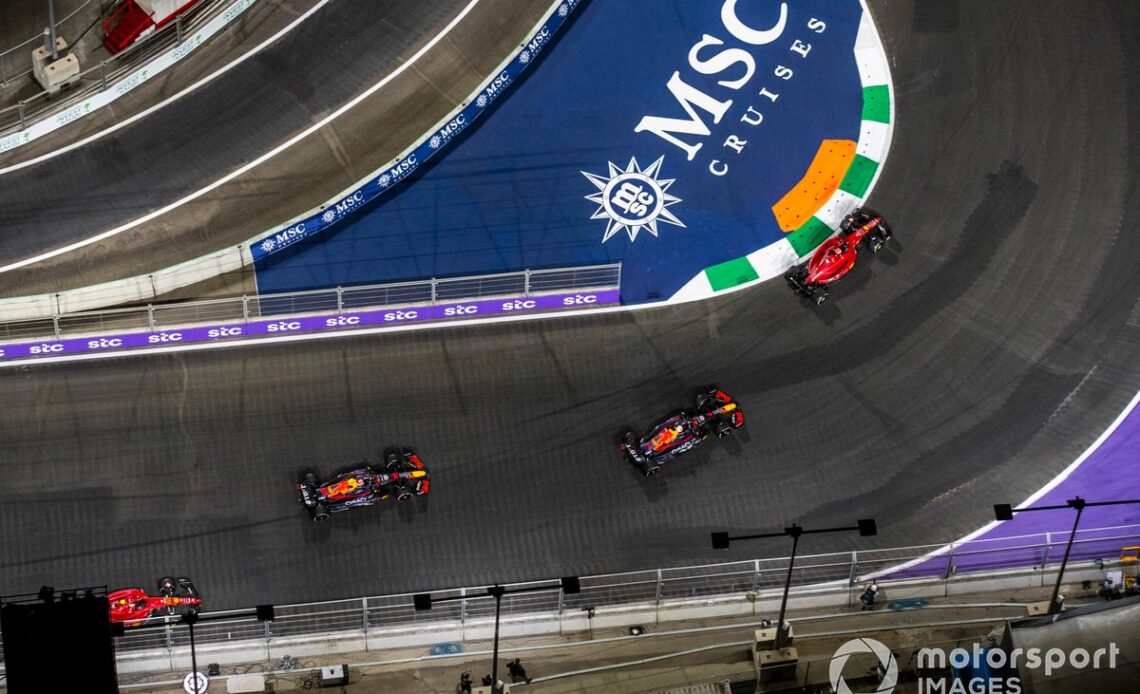The final of three DRS activation zones was located in the braking zone before the final hairpin connecting two long straights.
Drivers would sometimes avoid passing the car in front on the back straight, so they could still enjoy DRS on the following main straight, leading to defending cars to brake erratically to force the overshoot.
The tactic was used in 2021’s inaugural race when Max Verstappen and Lewis Hamilton battled for the lead amid an acrimonious title fight.
Verstappen slowed in order to let Hamilton through on purpose, so he could then have the benefit on DRS on the run down to Turn 1 and easily pass his rival again.
Similar gamesmanship took place in last year’s race between Verstappen and Ferrari’s Charles Leclerc, with Red Bull team boss Christian Horner suggesting the activation point should be moved to avoid “cat-and-mouse games”.
Charles Leclerc, Ferrari F1-75, Max Verstappen, Red Bull Racing RB18, Sergio Perez, Red Bull Racing RB18 ,and Carlos Sainz Jr., Ferrari F1-75
Photo by: Sam Bloxham / Motorsport Images
The FIA has now responded by moving the third DRS activation point from the Turn 27 braking zone to the main straight. The pre-race event notes show the point is now located 170m past the hairpin, so drivers won’t be enticed to brake erratically into the final corner.
The governing body announced earlier this year that it would tweak DRS zones at five circuits in order to either make overtaking easier or make it more of a challenge on circuits where it was deemed too trivial.
At the season opener in Bahrain the first DRS zone was shortened, with further changes coming in Melbourne, Baku and Miami.
The Jeddah Corniche street circuit has also been modified for the second year in a row to improve visibility. At Turns 14 and 20, two of the quickest blind corners on the circuit, several barriers have been moved back to create better sightlines and enlarged run-off areas.
To further address safety concerns the ultra-fast circuit has been made slightly slower with the addition of a bevelled kerb through the high-speed left-right sequence at Turns 22 and 23, which is expected to reduce speeds by 50km/h.
Additional bevelled kerbs and rumble strips have also been installed at various other corners.
Click Here to Read the Full Original Article at Autosport.com – Formula 1 – Stories…

